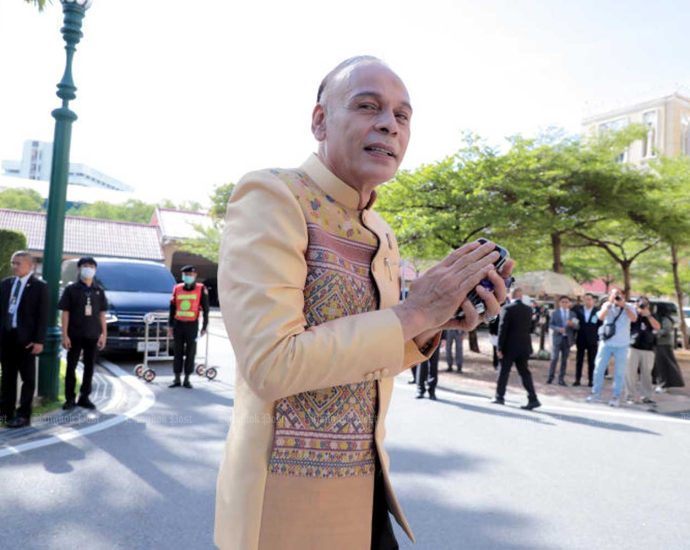PM ‘excited’ to meet Apple CEO
PUBLISHED : 26 Oct 2023 at 04:00

Prime Minister Srettha Thavisin will meet Apple CEO Tim Cook next month during an Apec Meeting in San Francisco as part of the government’s strategy to lure foreign investors to the kingdom.
The meeting was disclosed yesterday when Mr Srettha, also finance minister, gave a lecture at a special forum held by the Economic Reporters Association in Bangkok. Mr Srettha said he met top business leaders during his recent trip to the US and China. He is looking forward to holding further talks with the wider business community. He said the Thai business community has been invited to join his trip to the US next month. He is also excited about meeting the CEO of Apple and expects the talk to be fruitful.

